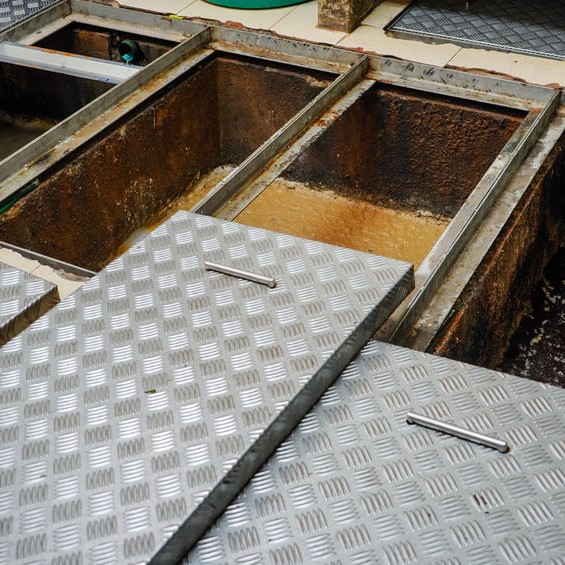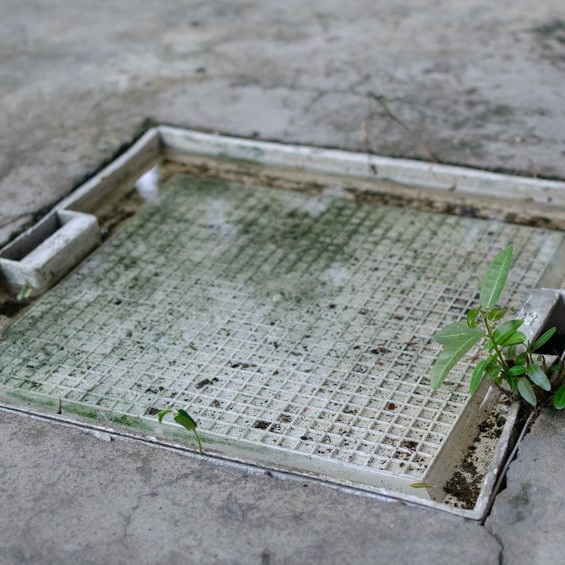
What is the purpose of a grease trap?
If you’re not in the restaurant business or never worked in and industrial kitchen, you may not know the answer to the question: What is a grease trap? An important part of a restaurant’s functioning properly are grease trap and drains. A grease trap performs as a receptacle that collects the fats, greases, and oils from wastewater. It is positioned between a restaurant drain line and the sanitary sewer lines.
When grease is poured down a drain, it enters the main sewer system. Over time, that grease will create blockages, foul odors, and pest infestation. The purpose of the grease trap is to catch those substances, fat, oil, grease to keep that blockage and odor from building or attracting pests and rodents. In the restaurant industry, fat, oil, and grease are referred to as FOG.
Without a professionally installed and proper working grease trap, the restaurant or industrial kitchen would have ongoing drain and plumbing problems. Anyone that has ever owned, managed, or worked in a restaurant can attest to the amount of problems this can cause.
Are grease traps necessary?
FOGs (fats, oils, and greases) seem rather harmless, but they can cause a lot of damage to drains, plumbing pipes, and sewer lines. Why? As they cool down, fats, greases, and oils solidify, whether the are poured down the drain or just sit in a container on a counter.
When poured down the drain, they cling to the sides of the pipes and then any debris, like food scraps stick too. Eventually, enough debris and food, more FOG create a sludge and create blockage. That is where a grease trap comes into the play for a commercial or industrial kitchen.
Why get a grease trap?
Getting past the immediate drains and pipes of the kitchen. Without a grease trap, FOG can will create more problems for the septic tank or sewer main. The possible problems go past the immediate septic tank and sewer main. When sewage is released into the environment is degrading for the environment and can pose a risk to the public’s health.
It is for this reason that most city ordinances, some counties, require commercial and industrial kitchens to have a grease trap installed. It becomes the restaurant or company’s responsibility to keep FOG out of the sewer system. The person that is responsible for sewer backup that is caused because there isn’t a grease trap will be cited and the company fined. Repeated citations and fines can result in the restaurant or kitchen being closed until a grease trap is installed.
What size grease trap do I need?
The dish machine and grease trap should have matching quantity capacity. For example:
- Dish Machine with ten to fifteen gallon capacity – A fifteen pound grease trap
- Dish Machine with twenty to thirty pound capacity – A twenty pound grease trap
- Dish Machine with a fifty pound capacity – A twenty five pound grease trap
How often should grease traps be cleaned?
Even with it being well established the importance a grease trap be installed in a commercial kitchen; they are still neglected with maintenance and upkeep. In addition to the issues we’ve mentioned, another factor that makes a grease trap important is grease fire prevention.
There internationally recognized rule for cleaning a grease trap is called the One-Fourth Rule. The rule states when a grease trap has reached one-fourth of its capacity with FOGS, regardless the size of the grease trap, it should be emptied and cleaned. Many restaurants and commercial kitchens arrange a weekly or bi-weekly collection with a grease trap company.

Can you clean your own grease trap?
A large dining establishments or commercial kitchen will have a grease trap with a capacity of 500 gallons up to 2,500 gallons. If there is manpower and time available that isn’t needed for running the restaurant, and you have the source where to dispose of the FOG, then sure, go for it and save that money.
For a small eating establishment, it may be easier to do their own grease trap cleaning, but why bother with it? Check with the city and county on regulations grease trap maintenance, some require a certificate or license.
We have reviewed what a grease trap is and the purpose of having one in a commercial or industrial kitchen, grease trap pros and cons. It is an operational thing for the restaurant or industrial kitchen and a grease trap provides environmental benefits by keep the sludge of FOG out of the water system.
Not having a grease trap can cause a plumbing disaster for a restaurant, and in some municipalities, the person in charge can be cited and fined. Repeated fines can have a location closed down until the jurisdiction has received certification a grease trap has been cleaned or installed. Call 800-330-7686 today for grease trap maintenance in Fort Pierce and Port St. Lucie, Fl!

